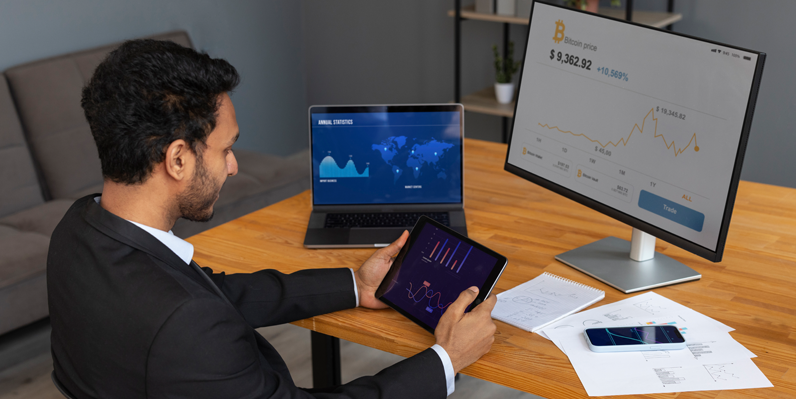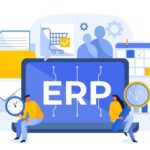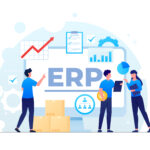Choosing The Best ERP Software For Your Trading Company
In the dynamic world of trading, where agility, efficiency, and precision are paramount, selecting the right Enterprise Resource Planning software is a strategic decision that can significantly impact your business’s success. With numerous options available, each tailored to specific industries and business models, the process of choosing the best ERP software for a trading company can be overwhelming. To help navigate this decision-making journey, consider the following key factors:
1. Industry-Specific Functionality:
Not all ERP solutions are created equal, and it’s crucial to choose one that aligns with the unique requirements of the trading industry. Look for features that cater specifically to trading operations, such as order processing, supply chain management, inventory tracking, and multi-currency support. A system tailored to your industry will ensure smoother integration and more effective performance.
2. Scalability:
Your trading company may experience growth, seasonal variations, or changes in market demand. Select the best ERP software that is scalable, allowing you to expand or adapt to evolving business needs seamlessly. Scalability ensures that the ERP system grows with your company, preventing the need for frequent overhauls or migrations.
3. Integration Capabilities:
An effective ERP system should seamlessly integrate with your existing software and technologies. This includes compatibility with accounting software, CRM systems, e-commerce platforms, and other essential tools your trading company relies on. Integration capabilities enhance efficiency by reducing manual data entry and ensuring data consistency across various business functions.
4. User-Friendly Interface:
The success of any ERP implementation depends on user adoption. Choose a system with an intuitive and user-friendly interface that minimizes the learning curve for your team. A system that is easy to navigate and understand will facilitate quicker on boarding, reducing downtime during the transition phase.
5. Customization Options:
No two trading companies are identical, and your ERP software should be adaptable to your unique business processes. Look for software that offers customization options, allowing you to tailor the system to match your specific workflows. Customization ensures that the ERP solution aligns closely with your business requirements, providing a more tailored and efficient solution.
6. Mobile Accessibility:
In a world where business happens beyond the confines of an office, mobile accessibility is crucial. Opt for an ERP system that offers mobile functionality, enabling your team to access essential information and perform tasks while on the go. This flexibility enhances productivity and responsiveness to market changes.
7. Comprehensive Reporting and Analytics:
A robust ERP system should provide powerful reporting and analytics tools. Real-time insights into key performance indicators, sales trends, and inventory turnover are essential for informed decision-making. Choose a solution that offers customizable reports and analytics dashboards tailored to the specific metrics that matter most to your trading business.
8. Vendor Reputation and Support:
Research the reputation of ERP vendors in the market. Consider factors such as their track record, customer reviews, and the level of customer support they provide. A reliable vendor with a history of successful implementations and excellent customer service can significantly contribute to the success of your ERP implementation.
9. Regulatory Compliance:
The trading industry often involves navigating complex regulatory landscapes. Ensure that the ERP software you choose complies with relevant industry regulations and standards. This is crucial for avoiding legal issues, ensuring data security, and maintaining the trust of your customers.
10. Total Cost of Ownership:
Evaluate the total cost of ownership, considering not only the upfront costs but also ongoing expenses such as maintenance, upgrades, and support. While it’s tempting to focus solely on the initial investment, a holistic view of the TCO will give you a more accurate picture of the long-term financial implications of your ERP solution.
Conclusion
In conclusion, choosing the best ERP software for your trading company is a strategic decision that requires careful consideration of your business’s unique needs and objectives. By prioritizing industry-specific functionality, scalability, integration capabilities, user-friendliness, customization options, mobile accessibility, comprehensive reporting, vendor reputation, regulatory compliance, and the total cost of ownership, you can make an informed decision that sets the foundation for success in the ever-evolving world of trading.






